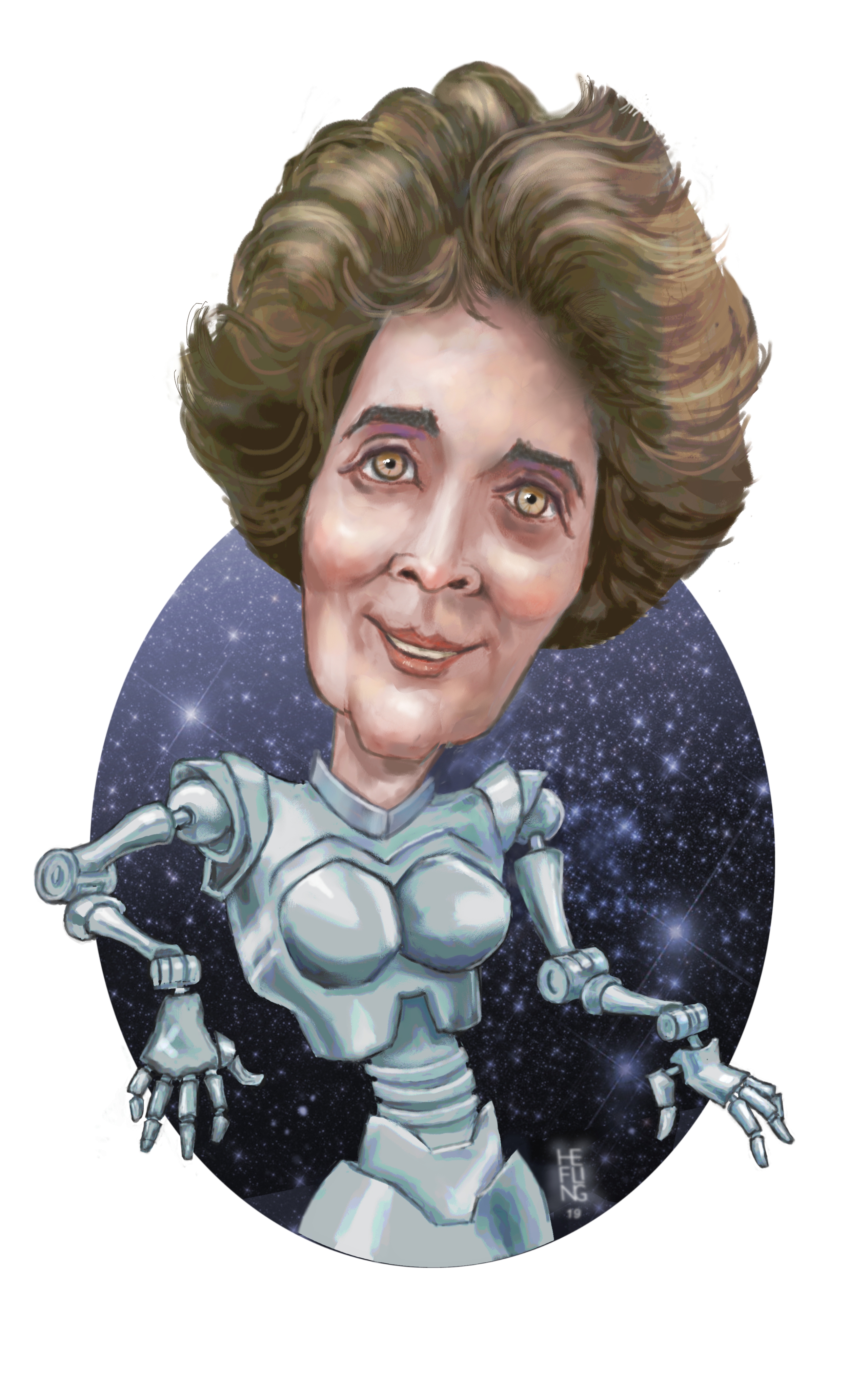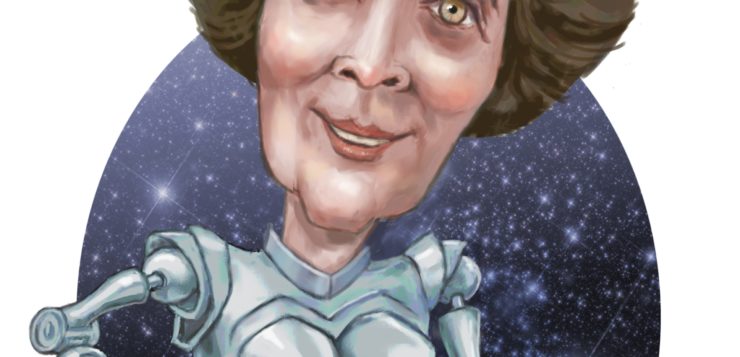 Joanna Russ
Joanna Russ
by Gwyneth Jones
Univ. of Illinois Press. 224 pages, $22.
IMAGINE that you are a gifted Jewish child growing up in the 1940s and ’50s, reading science fiction stories and physics textbooks. You earn a BA in English Literature from Cornell in 1957 and an MFA in playwriting from Yale in 1960. You want to teach college, and you learn that Cornell’s English Department is hiring new professors. But… you are a woman, and this department has never hired a woman to date. In fact, during the “domestic revival” of the post-World War II years, open positions at universities were given to men only.
Such was the employment environment faced by Joanna Russ (1937–2011) in the early 1960s. Whip-smart, assertive, and ambitious, she was forced to take office jobs and radio work to make a living. It was not until 1969, after she had published numerous science fiction stories, book reviews, essays, and a novel, that she was hired to teach at Cornell.
Apart from her career as an academic, which included a daring study on Willa Cather, Joanna Russ is famous for four decades of groundbreaking feminist science fiction and criticism. Her short stories won the Nebula Award in 1972 and the Hugo Award in 1982. In 1988 she was honored with the Pilgrim Award for her lifetime contribution to science fiction and fantasy scholarship, and in 2013 she was inducted into the Science Fiction Hall of Fame. How was she able to break into the field of science fiction—a notoriously male domain—as an author and critic while at the same time she faced rampant discrimination in the academic world?
The answer is twofold. First, science fiction at that time was regarded as the lowest form of genre literature. Second, the best-known science fiction authors recognized Russ’ talent, encouraged her writing, and published her. In other words, they let her into the club.
 Joanna Russ, by Gwyneth Jones, is the most recent entry in the University of Illinois Press’s “Modern Masters of Science Fiction” series.
Joanna Russ, by Gwyneth Jones, is the most recent entry in the University of Illinois Press’s “Modern Masters of Science Fiction” series.
She published twelve novels and collections of stories as well as five books of critical nonfiction between 1968 and 2007. The most renowned and controversial of them, both at the time and today, is her 1975 novel The Female Man. The title alone announces the book’s radical feminism. Despite the incipient women’s movement, U.S. society in the early 1970s still imposed strict gender roles on both men and women. Russ herself acknowledged that The Female Man “has a great deal of rage in it.” The story concerns four women from alternate times and places who cross paths in their separate realities until they all meet together to consider helping one of them in her quest to overcome male supremacy. Another of the four comes from a future planet peopled solely by women, whose lives Russ takes delight in describing. Jones observes of this utopia: “the removal of binary gender (more significant, even, than the removal of the sexual threat that men present) is transforming human beings, in a society where reproduction is technological and humanity is no longer ‘natural,’ into benign creators and caretakers of the natural world—and nobody we meet seems overly burdened by doctrinaire politics.”
The entire novel is a wild ride: idealistic, playful, thought-provoking, at times dizzying, often very funny, and deadly serious. The novel also operates at the metaphysical level. Particularly by the end, Jones asserts, The Female Man is arguably no longer even science fiction. The four protagonists (Jeannine, Janet, Joanna, and Jael) are aspects of the same person: the author. “Bringing these four to life and letting them fight for attention in an extended, fascinating, complex single image [is]a thrilling modernist (or post-realist) experiment in the art of compelling fiction to tell the truth—the whole truth, in all its immediacy and complexity—about a human experience.”
Joanna Russ’ work is now taught in universities worldwide. She herself became a tenured professor at the University of Washington, from which she retired in 1994. A contemporary of Ursula K. Le Guin and James Tiptree, Jr. (the pseudonym of Alice Sheldon), she is counted among the most important science fiction authors of the 20th century. Indeed, in this age of #MeToo, violence against transgender people, the 50th anniversary of Stonewall, and #BlackLivesMatter, her work is as necessary as ever. Sadly, only a few of her books are in print, kept alive by university presses (We Who Are About To…, The Female Man, How to Suppress Women’s Writing, The Two of Them, and To Write Like a Woman).
Gwyneth Jones’ Joanna Russ is a valuable addition to the growing scholarship about the author. This book, while neither a biography nor strictly a critical study of the author’s body of work, offers perceptive readings of much of Russ’ fiction. Throughout, Jones foregrounds her development as both a feminist and a writer; the two often went hand-in-hand. Jones notes “the dual project of Joanna’s feminist novels: both a fictional autobiography of her own evolving feminism and an interrogation of the sexism in ‘science fiction.’”
For a woman who changed science fiction forever, not despite but because of her feminism and lesbianism, Joanna Russ is virtually unknown outside of science fiction circles. Perhaps as more and more science fiction by women crosses over into the mainstream in the guise of dystopian fables such as Margaret Atwood’s The Handmaid’s Tale (1998) and Naomi Alderman’s The Power (2016), readers will turn back to read the foremothers of the genre. Joanna Russ was a woman trapped in her own time who wrote blistering and enchanting stories that upended norms of gender, power, and sexuality. I hope the scholarship around her work will motivate more publishers—and readers—to (re)discover her fiction.
Martha K. Davis is the author of the novel Scissors, Paper, Stone, which won the Quill Prose Award in 2017.






